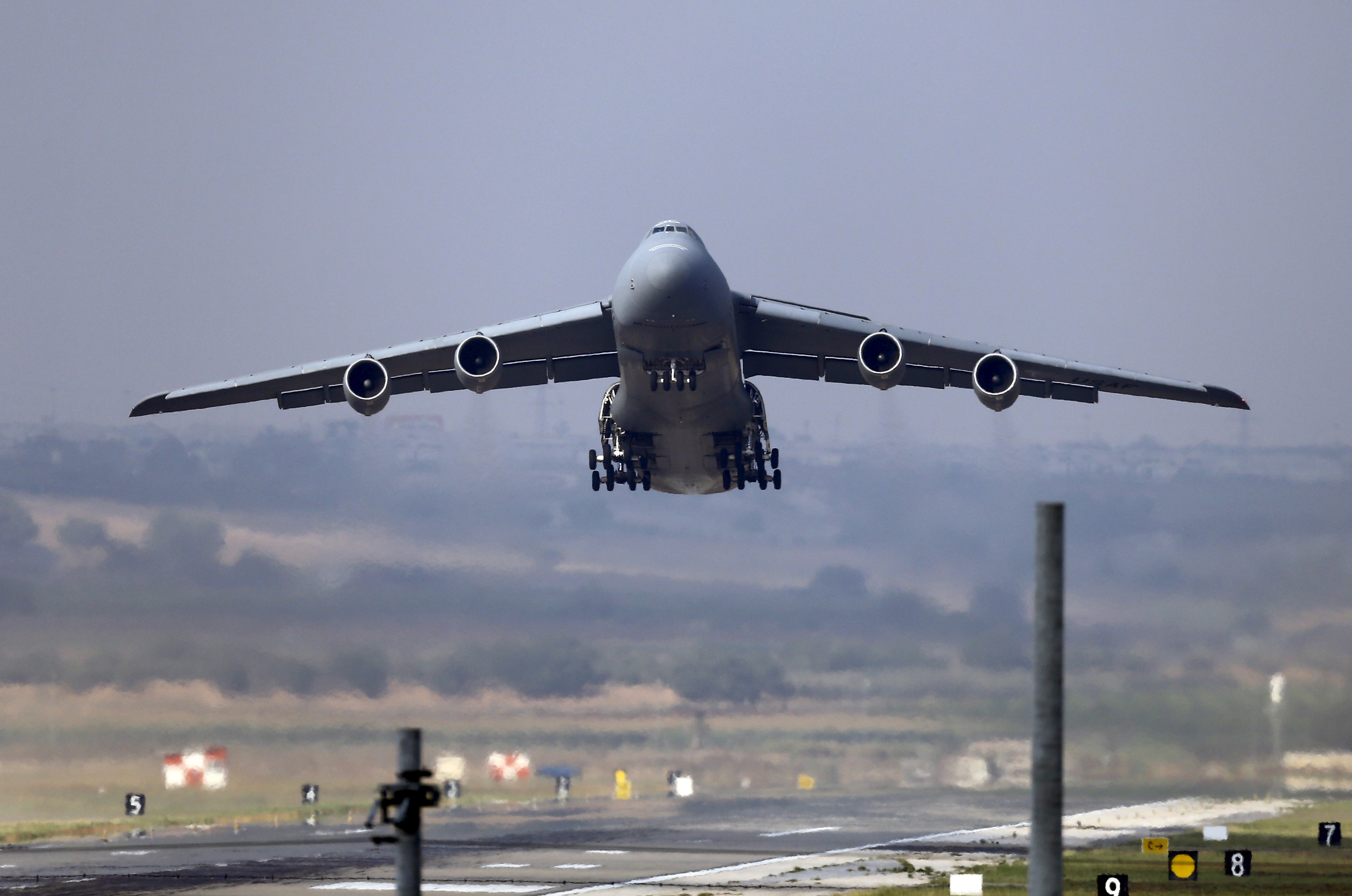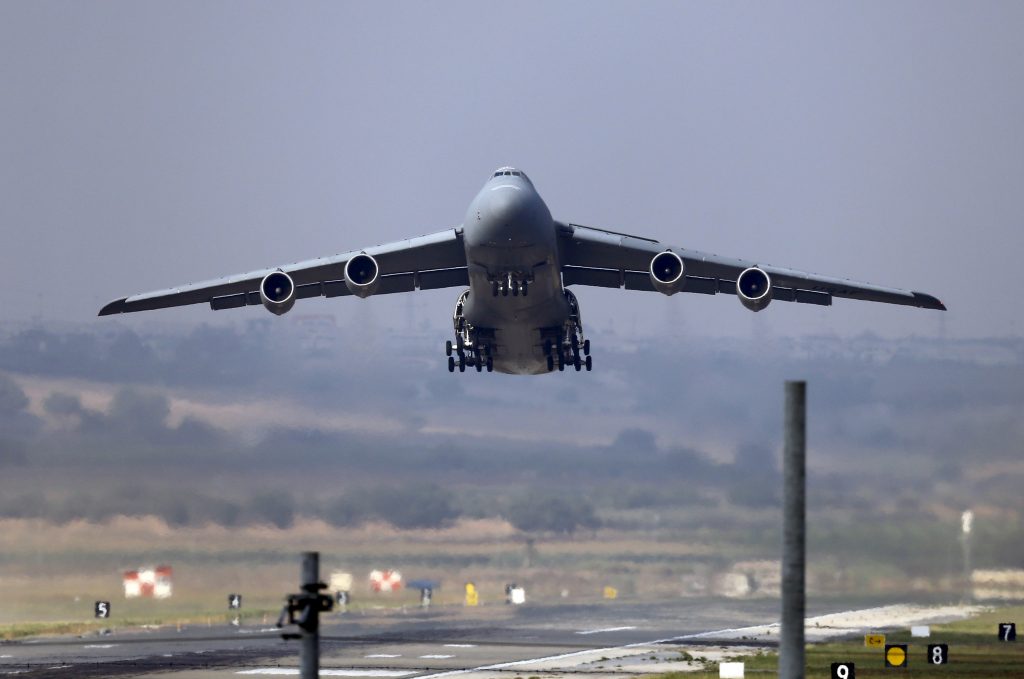
Atlantic Council’s Francis J. Ricciardone says Turkey is making a distinction between Kurdish groups in Iraq and Syria
The US-Turkish alliance against the Islamic State of Iraq and al-Sham (ISIS) complicates but need not impede, and might even ease, the United States’ military partnership with a Syria-based Kurdish group that has been instrumental in the war on ISIS, said Francis J. Ricciardone, Vice President and Director of the Atlantic Council’s Rafik Hariri Center for the Middle East.
Soon after the July announcement of a landmark deal that permits US jets to use a Turkish air base—Incirlik—to launch strikes against ISIS and envisages the creation of a “safe zone” in Syria, the Turkish military launched an air campaign against Kurdish militants belonging to the Kurdistan Workers Party (PKK) in Iraq. The airstrikes have been ongoing. Both the United States and Turkey consider the PKK to be a terrorist group.
Here’s where the lines get blurry. The Kurdish People’s Protection Units (YPG), the military wing of the Syrian Kurdish Democratic Union Party (PYD), has played a significant role in the US-led war on ISIS in Syria. YPG fighters have served as the eyes of the US-led alliance on the ground in Syria providing coordinates of ISIS positions for US jets to bomb. The YPG receives US military assistance, and US officials say this relationship will only grow.
But the PYD/YPG is at least politically “affiliated” with the Turkish Kurdish PKK–the declared enemy in armed conflict with the Turkish state—while the PYD has declared it wants peace with Turkey.
Ricciardone, who served as the US Ambassador to Turkey from 2011 to 2014, said that when he was in government he saw no evidence of PYD/YPG operational support to the PKK, but it is reasonable to assume that there are “close cross-border communications” between the two groups.
“It’s hard to imagine that the PYD would ‘coordinate’ with the PKK in the sense of ‘aiding’ or ‘supporting’ PKK operations against Turkey, very much against their declarations of the peaceful relationship with Turkey, which they obviously need and quite plausibly claim to desire,” he said.
“It’s much easier to imagine that the PYD would welcome operational assistance from any quarter, including the PKK and Iraqi Peshmerga (as last fall for Kobane), or for that matter even from Turkish forces, versus ISIS and their like,” he added.
Francis J. Ricciardone spoke in an interview with the New Atlanticist’s Ashish Kumar Sen. Here are excerpts from our interview:
Q: Are you concerned that the US-Turkish alliance against ISIS will come at the cost of the close military relationship between the United States and the YPG?
Ricciardone: Not at all. All evidence is to the contrary.
Q: What level of coordination exists between the YPG in Syria and the PKK in Iraq?
Ricciardone: If the concerned governments have evidence of any “coordination,” in the sense of armed operations or movements of fighters, they have not presented it publicly.
When I was in government, I saw no such evidence presented to the USG by other governments, nor detected unilaterally by the USG. That said, it’s reasonable to suppose that there must be close cross-border communications among people affiliated with both those Kurdish entities regardless of the border.
It’s hard to imagine that the PYD would “coordinate” with the PKK in the sense of “aiding” or “supporting” PKK operations against Turkey, very much in violation of their declarations of the peaceful relationship with Turkey, which they obviously need and quite plausibly claim to desire. It’s much easier to imagine that the PYD would welcome operational assistance from any quarter, including the PKK and Iraqi Kurdish Peshmerga (as last fall for Kobane) or for that matter even from Turkish forces, versus ISIS and their like.
Q: Are the recent attacks in Turkey a backlash against the US-Turkey alliance against the Islamic State and Turkey’s strikes against the PKK?
Ricciardone: The miniscule DHKP/C [Revolutionary People’s Liberation Party–Front], which claimed the attacks [August 10] at the police station and on the US Consulate, has attacked US and Turkish facilities on and off for decades. They are a museum piece, vintage 1970s, extreme leftist nationalist radical group who are pretty much out of business in terms of any pretensions to being a political movement. A number of them suffered a recognized psychological syndrome from brain damage consequent to their extended hunger strikes while in prison. They were released and a handful have popped up as trained suicide bombers.
One such DHKP/C suicide assassin attacked the US Embassy in Ankara on February 1, 2013, while I was there [as Ambassador]. It turned out he was one of about a dozen people who were identified as trained DHKP/C suicide bombers.
Q: Does Turkey fear the PKK more than it fears ISIS?
Ricciardone: Turkey is a very strong republic and I don’t know any Turks who “fear” that their republic is going to fail or be defeated by the PKK or ISIS, much less the DHKP/C. Turks are fiercely nationalistic, whether on the left or right, and often there is a large ethnic component to that nationalism. This interferes with the resolution of the so-called “Kurdish issue.”
There has been a political process between the government of Turkey and the PKK over the past several years, which failed this year because of exploitation of ethnocentric nationalism during the election process and lately the PKK attacks. That might be able to get back on track. I certainly hope so.
ISIS is another matter. I don’t know any Turks who share their vision of a caliphate or broader “Islamic state” based in Anatolia. Evidently a handful of Turks do share this vision and have gone to fight with ISIS. Of course, the Turkish state is very wary of ISIS as an enemy that could carry out, and now evidently has carried out terrorist attacks, but there is zero chance that ISIS will conquer any Turkish territory—much less defeat the Republic.
Lately, [Turkish] President [Recep Tayyip] Erdogan has come out identifying all three groups [the PKK, ISIS, and DHKP/C] as terrorist groups that must be defeated using the full force of the state, lumping these very diverse elements together as a single complex of threats.
Q: Does Turkey make a distinction between the YPG and PKK?
Ricciardone: In a practical sense, they do. For example, for the past couple years there have been quiet, but not entirely secret, contacts between senior officials from the Turkish government and a visiting official of the PYD, [the group’s Co-Chairman] Salih Muslim.
There is a functional difference in how the Turkish government treats the PKK. With the PKK their contacts have been indirect and usually more covert. One PKK leader is in exile in the mountains in Iraq. Another is in prison. The Turkish government deals with the PKK as the self-declared, armed enemy of the Turkish state. The PYD, on the other hand, has declared its desire for peaceful relations with Turkey, now and in the future. Thus both the Turkish state and allied states quite appropriately treat the PYD and PKK very differently.
The Clinton administration designated the PKK a Foreign Terrorist Organization in 1997. The Bush administration started providing Turkey with real-time intelligence on the PKK in Iraq. This practice continued with the Obama administration. So it is simply not the case, as some claim, that the United States and other allies have begun to “turn their eyes” from Turkish airstrikes on the PKK as some sort of quid pro quo for Turkey’s recent sharp and overt escalation of cooperation with the United States and coalition operations against ISIS.
Q: Are the United States and Turkey in agreement on what role groups based north of Aleppo, particularly Jabhat al-Nusrah, al-Jabha al-Shamia, and Ahrar al-Sham, will play in a “safe zone” inside Syria?
Ricciardone: My understanding is that the United States hasn’t agreed to a “safe zone” in the same terms as the Turks have been proposing it. We would be getting way ahead of ourselves if we were to discuss which Syrian opposition groups would play which roles in governing or holding which territory in Syria. I would be surprised if US-Turkish conversations had such a focus. My sense is that Turks as well as Americans see such issues as the responsibility for Syrians and their communities to sort out, not for Washington, Ankara, or anyone other than Syrians themselves to assign.
Q: Do you see this as a potential obstacle?
Ricciardone: The complicated situation of the Syrian civil war is the kind of complex problem that allied governments, sharing broader strategic interests if not identical strategies, manage together through continuous engagement of their national security establishments: diplomatic, defense, intelligence, law enforcement. Turkey and the United States are allies with some shared interests and some very divergent perspectives on what is going on in Syria and into Iraq. Both sides necessarily are improvising to respond to events there, but at least now the two allies, and indeed other allies and anti-ISIS coalition partners, seem to be improvising in closer collaboration. There are some well-known divergences, at least of articulation of strategic purposes. But from the multiple visits by senior US officials to Turkey, it’s clear that very substantive coordination is happening, and yielding results.
Q: Two months after the elections there is still no coalition government in Turkey. Has Erdogan’s war on the PKK hurt the liberal pro-Kurdish People’s Democratic Party (HDP) that put up a strong performance in the elections and its chances to be part of a coalition?
Ricciardone: The only definitive answer to that question will come in the next elections, whenever they may occur. For now, all sides can speculate as to which parties are at greatest risk of political damage from the PKK attacks, or stand to exploit them for political gain. I agree with those who believe the PKK’s resumption of armed attacks can only hurt the HDP, which had worked hard to build credibility among the broader electorate and put distance between themselves and the PKK. The HDP has waged a nonviolent political campaign stressing the full civil rights of all citizens of Turkey, including the Kurds. As a citizen of the United States, Turkey’s strongest ally interested in her security and prosperity, I don’t worry about which party is gaining or losing from the conflict—but I do hope that the government of Turkey and the PKK will find their way back to the political process they had begun a few years ago, based on improving Turkish democracy for all, and to bring it to a successful conclusion: the end of the armed conflict between the PKK and the Turkish Republic.
Q: What is the likelihood of fresh elections being held?
Ricciardone: That’s for the Turkish Prime Minister and President to address. If, together, they are determined one way or the other, they hold the legal authority under the constitution and the political authority from the results of the June 7 election, to realize their decision.
Ashish Kumar Sen is a staff writer at the Atlantic Council.
Image: A US Air Force C-5 Galaxy outsize cargo transport aircraft takes off from Incirlik air base in Adana, Turkey, August 10. The United States sent six F-16 jets and about 300 personnel to Incirlik Air Base in Turkey August 9, the US military said, after Ankara agreed in July to allow US planes to launch air strikes against Islamic State of Iraq and al-Sham (ISIS) militants from there. (Reuters/Murad Sezer)
